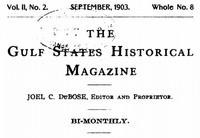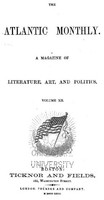Contested Agreement?
Attributing slavery as the primary basis of the war is not a new narrative. For example, in 1932, slavery was undoubtedly understood as the primary cause by W.E.B. DuBois, who confidently asserted in Back Reconstruction that, "[n]o one reading the history of the United States during 1850-1860 can have the slightest doubt left in his mind that slavery was the cause of the Civil War" (DuBois, 722).
Even before the start of the war, Alexander Stephens, Vice President of the Confederacy, acknowledged the role of slavery in the South's desire to secede. On March 21, 1861, in his "Cornerstone Speech," he directly listed slavery as a cause of succession and a cornerstone of the Confederate Constitution. "The new [Confederate] constitution has put at rest, forever," Stephens proclaimed, "all the agitating questions relating to our peculiar institution of African slavery as it exists amongst us the proper status of the negro in our form of civilization. This was the immediate cause of the late rupture and present revolution [the Civil War]."
He went on to say that the Confederacy was founded "upon the great truth" that slavery is the natural condition of Blacks, equality between the races was unnatural, and the Confederate government was "the first, in the history of the world, based upon" these principles. Indeed, historian Stephine McCurry sees the creation of the Confederate States of America as reactionary and a counterpoint to a larger emancipation movement sweeping throughout the Atlantic as a result of the Age of Revolution, 1776-1848 (McCurry, 12). At the outbreak of the Civil War, Americans understood that the conflict was inseparable from issues connected to slavery and white supremacy.
Southerners were not alone in seeing race and slavery as the primary force behind the Civil War. In the immediate aftermath of the war, many Northerners viewed the war as relating to Black Liberation, Emancipation, and a Second Founding of the United States—a step towards a more perfect union (Blight, 18). However, the consensus on slavery's role in the drive towards war dramatically changed in its aftermath for the American public as competing accounts shaped by narrative "memories" of the war began to enter the American discourse, fundamentally altering the nation's collective "memory" of the war's causation.


